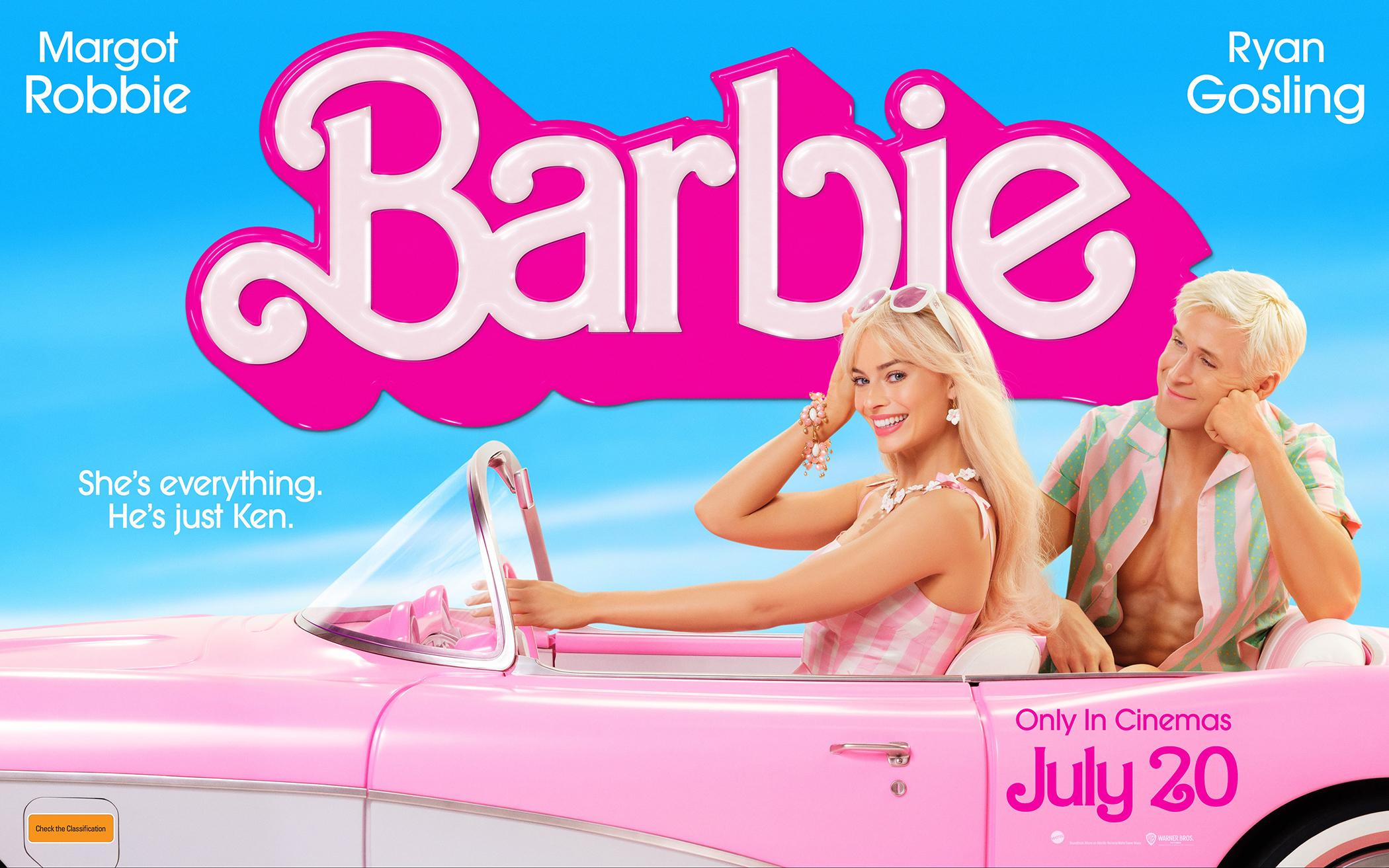What does it mean to be human?
This question is posed and grappled with in the bubblegum pink blockbuster movie, Barbie, directed with a canny eye by Greta Gerwig and starring Margot Robbie as the plastic plaything herself. If you haven’t heard of it, you may be living under a rock, and not a pink one.
As the trailer notes, this film is for moviegoers who love Barbie and hate her, and maybe for many of us who fall somewhere in between. (I adored playing with my Barbie as a little one, changing her fashionable clothes and folding her neatly into her convertible for a spin around the basement. I still want to go to Malibu one day! But as I got older, I resented the unrealistic beauty standard set by the doll, a standard no human could ever live up to, not even Margot Robbie.)
We meet Barbie in Barbie Land, a seeming utopia of shiny, happy Barbies and Kens of all ethnicities and professions, who are perpetually having the “best day” of their lives. But are they, really? It all smacks of toxic positivity and a shallow happiness that would never hold up in the real world, full of obstacles and pain, aging and death. Barbie Land is a kind of Eden before the Fall, and before Barbie starts thinking about death. But before you can say “stereotypical,” Barbie does think of death, and she becomes a fallen creature, all too aware of her fallen arches and other proofs of humanity.
Joined by her ridiculous, beach bum boyfriend, Ken (a show-stealing Ryan Gosling), Barbie sets out for the Real World to set things right among the humans who have stopped playing with her. Immediately, the duo discovers that they are not in Kansas—or Barbie Land—anymore. Things are complicated in the real world, where Barbie is objectified by men and the Supreme Court is not made up of beautiful women who are unfailingly fair and just as it is in Barbie Land. Ken, on the other hand, takes to life outside of Barbie Land like a duck to water. Suddenly, he has agency and privilege unlike anything he has ever known, just for being a man in a patriarchal world.
Barbie has been critiqued by some pundits, who have called it “anti-man” and even “communist.” I get the first complaint, although to me men such as Ken are treated empathetically. It’s patriarchal oppression that is being skewered here, not every single man on earth. Sure, this movie has a feminist underpinning, but most women would be able to relate to the America Ferrara character, who spouts a long litany of frustrations about being a woman. Her screed was a little bit heavy handed, yet I found myself relating to every word with a pang in my chest.
As for the communism charge, it’s pure click bait. Barbie is pink, not red! Besides, there are so many other interesting things to focus on in this movie, which was surprisingly touching as well as being funny and entertaining.
There is a scene at the beginning of Barbie’s sojourn in the real world, when she shares a park bench with an elderly woman (92-year-old costume designer Ann Roth). Barbie has never seen anyone aged, with the wrinkles and infirmities that attend every long life. She is deeply moved, a bit confused, but compelled to speak when she tells her benchmate that she is “beautiful.” It’s just one of the achingly human moments in this movie, moments carried beautifully by Robbie. As “stereotypical Barbie,” Robbie lends vulnerability, frustration, and even anger that contraverts her own near-perfect physical beauty. She should be sweeping the awards season come this winter; her performance is brilliant, tender, and true.
Back to the question at hand: What does it mean to be human? Barbie teaches us that to be human is to risk pain and even death, but that it is worth it to live an authentic, honest life. Not every day is the “best day,” but some days are, and it’s the hard, sad days that make the good ones even better. Such is life on earth with a God who redeems and repairs.
As Katelyn Beatty notes in her Substack, The Beaty Beat, “Christianity boldly says that Barbie has chosen rightly. That it's through our bodies where we experience both common and supernatural grace. That we are made for this material world. And that it is better to live in a body, even with its frailty and decay, than to strive for a plastic world of disembodied “perfection,” whatever that is.” (In theaters. Rated PG-13 for suggestive dialogue and brief language. Warner Bros.)
About the Author
Lorilee Craker, a native of Winnipeg, Man., lives in Grand Rapids, Mich. The author of 16 books, she is the Mixed Media editor of The Banner. Her latest book is called Eat Like a Heroine: Nourish and Flourish With Bookish Stars From Anne of Green Gables to Zora Neale Hurston.

